第41章 3(2)
For, when red wine is taken, the dejections of the stomach are seen to be coloured by its dregs; and such discoloration has been even seen on many occasions inside the stomach itself, in cases where there have been wounds opening into that organ. However, it is perhaps silly to be minutely particular in dealing with silly statements such as this.
The windpipe then, owing to its position in front of the oesophagus, is exposed, as we have said, to annoyance from the food. To obviate this, however, nature has contrived the epiglottis. This part is not found in all sanguineous animals, but only in such of them as have a lung; nor in all of these, but only in such as at the same time have their skin covered with hairs, and not either with scaly plates or with feathers. In such scaly and feathered animals there is no epiglottis, but its office is supplied by the larynx, which closes and opens, just as in the other case the epiglottis falls down and rises up; rising up during the ingress or egress of breath, and falling down during the ingestion of food, so as to prevent any particle from slipping into the windpipe. Should there be the slightest want of accuracy in this movement, or should an inspiration be made during the ingestion of food, choking and coughing ensue, as already has been noticed. So admirably contrived, however, is the movement both of the epiglottis and of the tongue, that, while the food is being ground to a pulp in the mouth, the tongue very rarely gets caught between the teeth; and, while the food is passing over the epiglottis seldom does a particle of it slip into the windpipe.
The animals which have been mentioned as having no epiglottis owe this deficiency to the dryness of their flesh and to the hardness of their skin. For an epiglottis made of such materials would not admit of easy motion. It would, indeed, take a longer time to shut down an epiglottis made of the peculiar flesh of these animals, and shaped like that of those with hairy skins, than to bring the edges of the windpipe itself into contact with each other.
Thus much then as to the reason why some animals have an epiglottis while others have none, and thus much also as to its use.
It is a contrivance of nature to remedy the vicious position of the windpipe in front of the oesophagus. That position is the result of necessity. For it is in the front and centre of the body that the heart is situated, in which we say is the principle of life and the source of all motion and sensation. (For sensation and motion are exercised in the direction which we term forwards, and it is on this very relation that the distinction of before and behind is founded.)
But where the heart is, there and surrounding it is the lung. Now inspiration, which occurs for the sake of the lung and for the sake of the principle which has its seat in the heart, is effected through the windpipe. Since then the heart must of necessity lie in the very front place of all, it follows that the larynx also and the windpipe must of necessity lie in front of the oesophagus. For they lead to the lung and heart, whereas the oesophagus leads to the stomach. And it is a universal law that, as regards above and below, front and back, right and left, the nobler and more honourable part invariably is placed uppermost, in front, and on the right, rather than in the opposite positions, unless some more important object stands in the way.